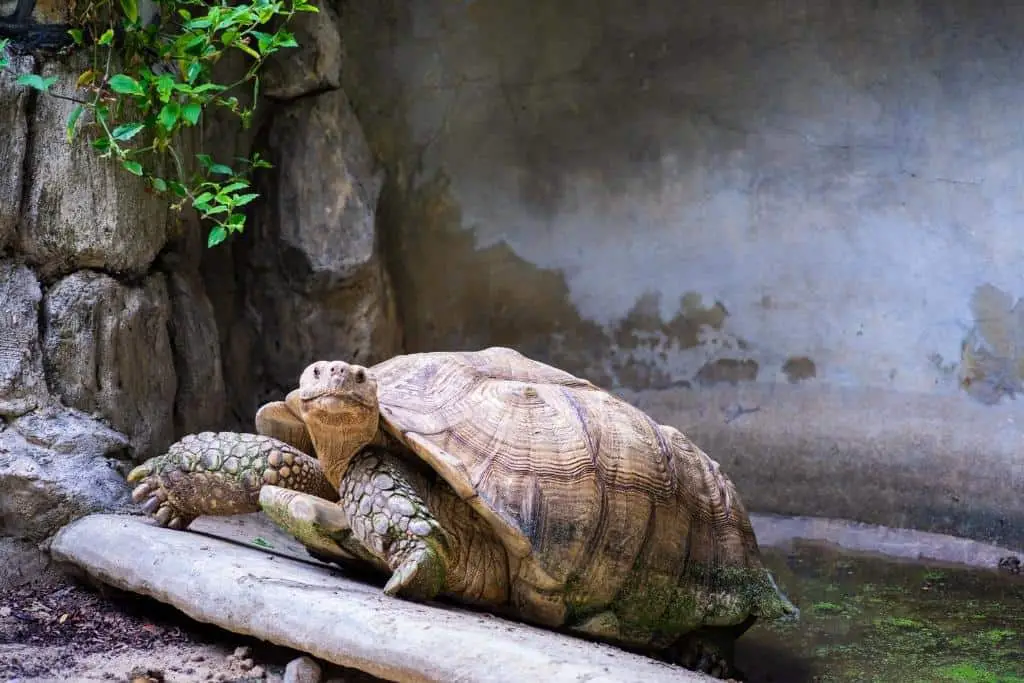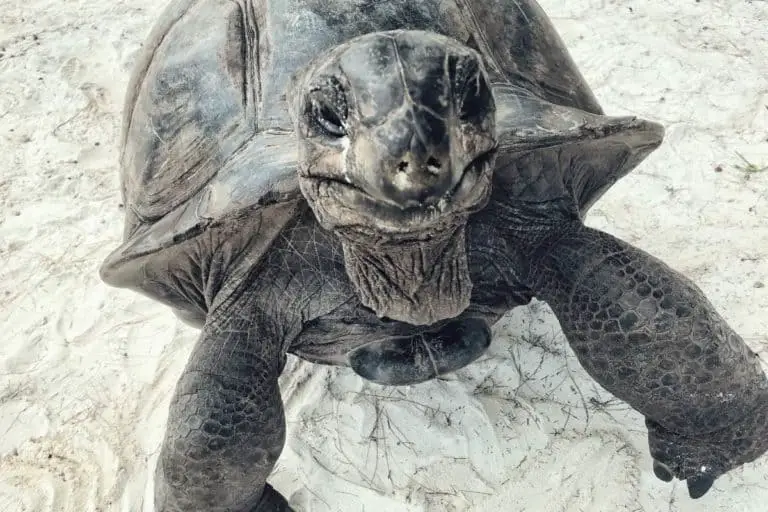Are Turtles Poisonous?
Turtles are often considered harmless creatures, but there is a common misconception that they are poisonous. This couldn’t be further from the truth!
Turtles are not poisonous, and in fact, they are pretty gentle animals.
They are often shy and prefer to retreat into their shells when they feel threatened. While turtles may not be poisonous, they can carry bacteria that can make humans sick.
This is why washing your hands thoroughly after handling a turtle or coming into contact with their environment is essential. Although turtles are not dangerous animals, taking them with care is important.
Can you touch a turtle?

Many people are fascinated by turtles but unsure if it is safe to touch them. The answer depends on the type of turtle.
Sea turtles, for example, are protected by federal law, and it is illegal to touch them. However, many other types of turtles can be safely handled.
When approaching a turtle, it is essential to use caution and avoid startling it. Some turtles may bite if they feel threatened.
Is a turtle shell poisonous?
The shell comprises two parts: the upper carapace and the lower plastron. The carapace is attached to the turtle’s spine and ribs, while the plastron is attached to the turtle’s abdominal muscles.
Together, these two sections provide protection for the turtle’s internal organs. In some species of turtles, the carapace is covered in spikes or other protrusions that can deliver a painful sting. However, these spines are not venomous and will not cause lasting harm.
Do turtles carry Salmonella?

The simple answer is yes, turtles can carry Salmonella. In fact, according to the CDC, all reptiles and amphibians are potential carriers of the bacteria.
The risk is highest for tiny turtles, as they are more likely to harbor the bacteria in their gut. In addition, turtles that are kept in dirty environments are also more likely to be infected.
When handling a turtle, it is essential to always wash your hands thoroughly afterward. If you have any cuts or open wounds on your hands, you should avoid contact with the turtle altogether.
Symptoms of Salmonella infection include diarrhea, vomiting, and fever. In severe cases, the bacteria can lead to sepsis or death. As a result, it is essential to take precautions when handling turtles or any other reptile.
Is a Turtle bite dangerous?
Most people think of turtles as harmless, docile creatures. Did you know, on the other hand, that some turtles can inflict a painful bite?
While the bite of most turtles is not venomous or poisonous, they can still cause infection or damage to your skin. And in some cases, the sharpness of certain turtle species can be pretty dangerous.
So, what makes a turtle bite dangerous? Well, it depends on the type of turtle and the size of its mouth. Some turtles have sharp beaks that can puncture your skin, while others have mighty jaws that can deliver a crushing bite.
In addition, some turtles carry bacteria in their mouths that can cause infection when introduced into a human wound. So, if you’re ever bitten by a turtle, it’s essential to clean the wound thoroughly and seek medical attention if necessary.
In conclusion, while most turtle bites are not dangerous, some can be harmful. So, it’s always best to avoid caution and seek medical attention if you’ve been bitten by a turtle.
There are a few things you should do if a turtle bites you.

Turtle bites can range from mildly annoying to dangerous, depending on the turtle’s size and the bite’s depth. If you are lucky enough to only receive a superficial bite, washing the wound with soap and water is sufficient.
However, if the bite is more severe, you must take additional precautions to avoid infection. First, clean the wound with soap and water, then apply pressure to any bleeding.
Next, hold the wound above your heart to reduce swelling, and finally, see a doctor as soon as possible. If you follow these steps, you should be able to avoid any serious complications from a turtle bite.
FAQ:
Are turtles poisonous to eat?
While a turtle shell is not poisonous, it can be harmful if ingested. The cover comprises keratin, the protein that makes up human hair and nails. However, the turtle shell contains calcium carbonate, unlike hair and nails.
This gives the shell its hardness but makes it highly abrasive. The sharp edges could damage the mouth and digestive tract if a person eats a turtle shell.
In addition, the calcium carbonate would bind with stomach acids, making it difficult for the body to absorb nutrients from other food. While a turtle shell is not poisonous, it is best to avoid eating it.
Are turtles poisonous to dogs?
Some turtles are poisonous to dogs, while others are not. The turtles that are poisonous to dogs typically have brightly colored shells. These turtles secrete a poison that can cause paralysis, respiratory problems, and even death in dogs.
The most dangerous type of turtle is the red-eared slider, which is native to the southeastern United States. If your dog comes into contact with one of these turtles, it is essential to seek veterinary care immediately.
Luckily, there are many types of turtles that are not poisonous to dogs. These include the box turtle, wood turtle, and eastern painted turtle. If you are unsure whether a particular type of turtle is safe for your dog, it is always best to err on the side of caution and keep your pet away from it.
Are turtles poisonous to cats?
While not all turtles are poisonous, some species contain toxins that can harm felines.
In particular, the western painted turtle contains a poisonous substance in its skin and shell. If a cat comes into contact with this toxin, it can cause vomiting, diarrhea, and seizures.
In severe cases, it can even lead to death. As such, it is essential to exercise caution if you have turtles in your home and make sure that your cat cannot access them. If you are concerned about your pet’s safety, it is best to consult with a veterinarian.
While turtles are not poisonous to cats, there are several reasons why they may not make the best pets for felines. Turtles can carry Salmonella, which can make cats very ill.
In addition, turtles require a warm and humid environment to survive, which can be challenging to recreate in the average home. Cats are also natural predators of turtles and may view them as toys or prey.
For these reasons, keeping turtles and cats separate is generally advisable.





